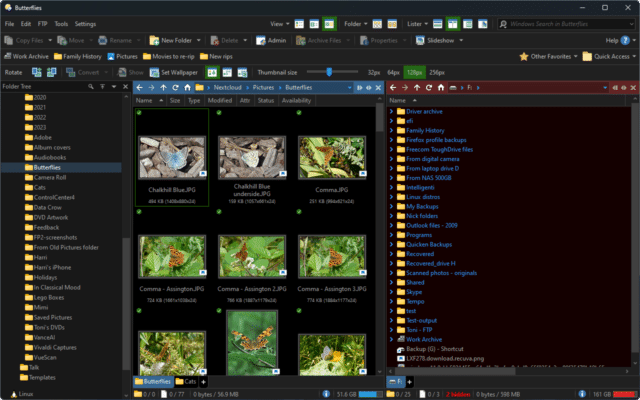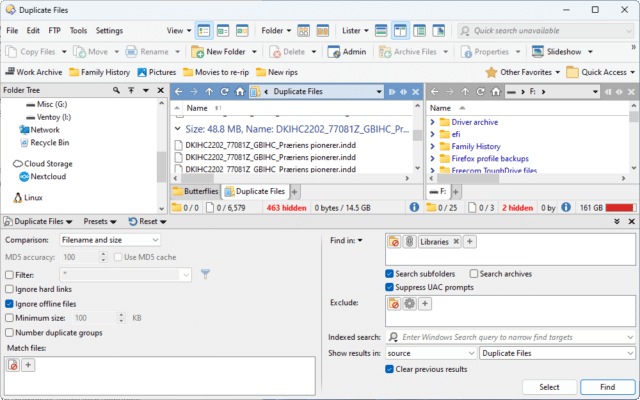
After a seven-year gap between major releases, Directory Opus 13.1 makes its bow on Windows PCs. The File Explorer replacement launches with a new licensing model and retires the old Light build to accompany the dozens of changes, improvements and tweaks.
The new release comes with no fewer than six pages of highlights, proving the developers haven’t been resting on their laurels for the past seven years. Directory Opus 13 opens with a facelift that comes with Dark and Light Modes, plus an ‘Any Colors You Like’ mode, where users can customize any aspect of the program via ‘Settings > Preferences > Colors and Fonts’.
The program also comes with several file copying improvements, from faster performance and support for server-side copy offload to redesigned progress dialog and queue windows. The program also incorporates support for the free Everything search tool via a new option on the search dropdown menu.
Other UI improvements include expandable folders, a favorites bar, support for paired folders and selection summaries. A new Lister Defaults window (Settings > Set Lister Defaults) makes it easier to define default layouts for windows, columns and toolbars.

The Folder Tree now comes with adjustable indentation and spacing, and users gain the ability to reorder or even disable tree roots completely. Cloud storage can now be moved to their own dedicated root folders. Also added is a button for closing all but the currently selected branch, and a preset system for saving and restoring open branches, which can now also be pinned for permanent access.
Other improvements include better display of long filenames with thumbnails (along with additional scaling and cropping modes), locked folder tabs (with customizable context menu), a new Find As You Type tool (use ‘ to search within Opus, or + to use Everything).
There’s a new movie player utilizing modern APIs, plus new user interfaces for the Find Files, Synchronize and Duplicate Files Finder tools with performance and feature improvements, as well as redesigned image converter and metadata display tools.
For a complete list of changes, the Directory Opus Manual has a collapsible list of detailed changes.
Those worried that GP Software is shifting Directory Opus to a rolling subscription model along the lines of Adobe and Microsoft 365 need not worry; the switch is to what GP term an ‘upgrade subscription’ model to ensure users receive the latest updates (including any major future releases). The pricing kicks in after the free update period — one year (new users) or two years (upgraders) and is set to cost around $17 (AUD$25) per year. A possible lifetime license may also be offered in the future.
For now, users can download a 30-day free trial (which can be extended to 60 days by registering) of Directory Opus for PCs running Windows 7 64-bit or later. The full version can be purchased from around $60 (AUD$89) for a single PC license, with 2- and 5-PC licenses also available. All new purchases come with one year of free updates.
